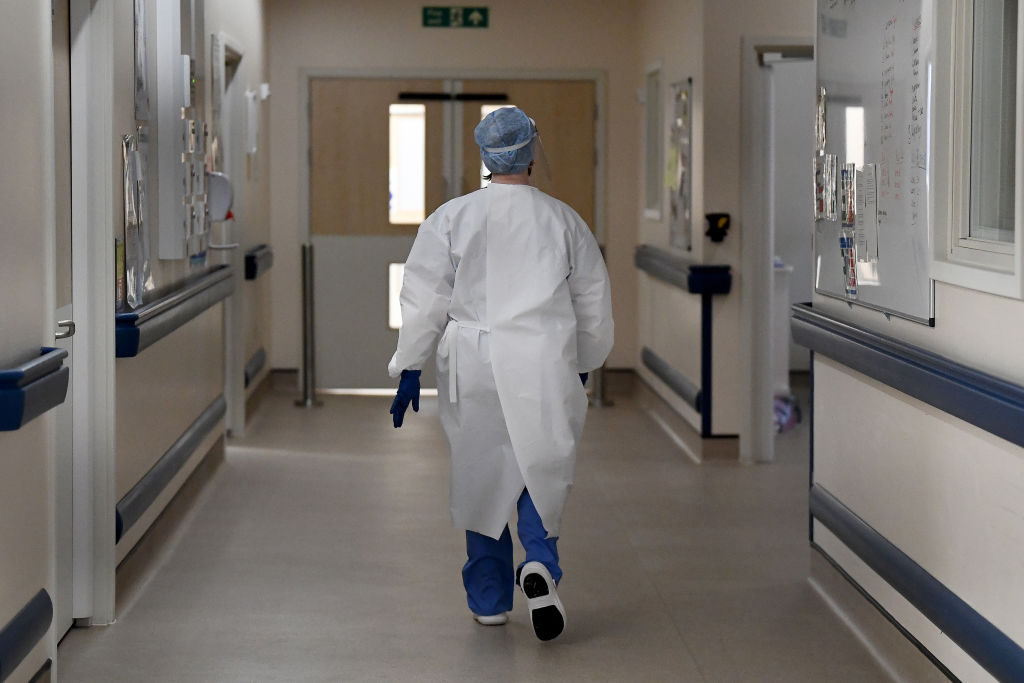The Government in the person of Rishi Sunak won a surprisingly positive public response
to what was essentially a tax-raising Budget this week.
Within 24 hours though, the same government had spectacularly lost the PR contest by recommending a 1 per cent pay rise for NHS staff across the board. The outcry was universal: mean, measly, an insult, a slap in the face, not a way to treat ‘our heroes’ – or, more personally, those who saved the Prime Minister’s life.
The rise – and it is currently just a recommendation to the NHS pay review body – is indeed a mistake. In fact, it is a double mistake, but not in the way it is being presented. The first error is diplomatic and tactical. Any pandemic-year pay rise proposed for the NHS was always going to be dismissed as ‘derisory’. The Government would have done better to include the NHS within its policy of no pay rise for the public sector, keeping its 1 per cent powder dry for the inevitable later bargaining. Now, that 1 per cent is the floor and will – doubtless – have to be improved upon. As for the second error, well that was even to have countenanced an across-the-board pay rise for the NHS at all.
Any talk of NHS pay always focuses on nurses – the ‘angels’ on the ‘frontline’ working all hours for a pittance. But this picture is long out of date. Lost in the current furore is that pay for newly qualified nurses has risen 12 per cent over the past three years, and that the average annual salary for a nurse is around
£34,000; not a fortune, but not bad – and augmented with cost-of-living allowances in London and the South-East.
As in most of the public sector there are grades and annual increments that are paid regardless of any freeze. Senior nurses can earn much more – indeed, they were mentioned as one of the groups that could be ‘caught’ by the Chancellor’s freeze on the lifetime allowance for pension pots. That limit, I remind you, is £1,073,100.
It is also worth noting that this 1 per cent recommended rise is across the NHS – which includes everyone from hospital porters to ancillary staff to managers and doctors. The NHS is not just about nurses, though it is their sympathetic image that inevitably fronts all the pay pleas. The pay of UK doctors, by the way, tends to be higher than that of their counterparts in much of the EU, so maybe they could donate their portion of the proposed rise to the staff who are lower paid.
The other ‘fact’ used to tug at our heartstrings over nurses is their 12-hour shifts. But let’s get this clear: they are not working 12 hours five or six days a week. The 12-hour shift system was amicably agreed with many trusts a while back and gives most nurses a three- or four-day week. Employers like it because it is relatively simple to administer; (most) nurses like it because it leaves days free for child-care or second jobs. The chief losers from this are not the nurses, but the patients, who face an ever-changing cast of nurses, tired out before their working day ends.
But back to pay. I am not one of those who says that nursing is a vocation and that pay does not matter. Indeed, the howls from aggrieved nurses on the phone-ins and social media in the last 24 hours are ample proof that pay matters a lot more than their angel-image would suggest. Rigid national pay-bargaining, however, has led to a big disparity in spending power between nurses in different parts of the country and higher turnover of staff in high-price areas. This suggests that more could perhaps be achieved by addressing the principle of national pay bargaining rather than by offering a rise across the board.
The fury of nurses and their advocates is now fuelling forecasts of a mass exodus from the profession, with a job in the local supermarket cited by phone-in callers as a preferable option. Which suggests, if nothing else, an extraordinary level of ignorance on the part of NHS staff about how other people live. At around £8 an hour, supermarket staff are paid less than all but the lowest-paid nurses; they have nothing like the job security, the predictability, or the pension provision of an NHS nurse. What is more, the last sector likely to suffer post-pandemic job losses is the NHS.
If anyone deserves a pay rise for their efforts during the pandemic, it is social care workers, who are indeed paid a pittance, often minimum wage (or less, if you calculate unpaid travelling time). They enjoy little job security, work irregular hours, may not qualify for sick pay, and have no public-sector pension to look forward to. Any spare government cash this year needs to be spent to bring social care workers up to the equivalent pay and conditions that pertain in the NHS. And any pennies that might be left should fund a short course for nurses on where they really stand on the national scale of pay and conditions. They and their cheerleaders seem not to have a clue.
Mary Dejevsky
Why NHS workers shouldn’t get a pay rise






Comments